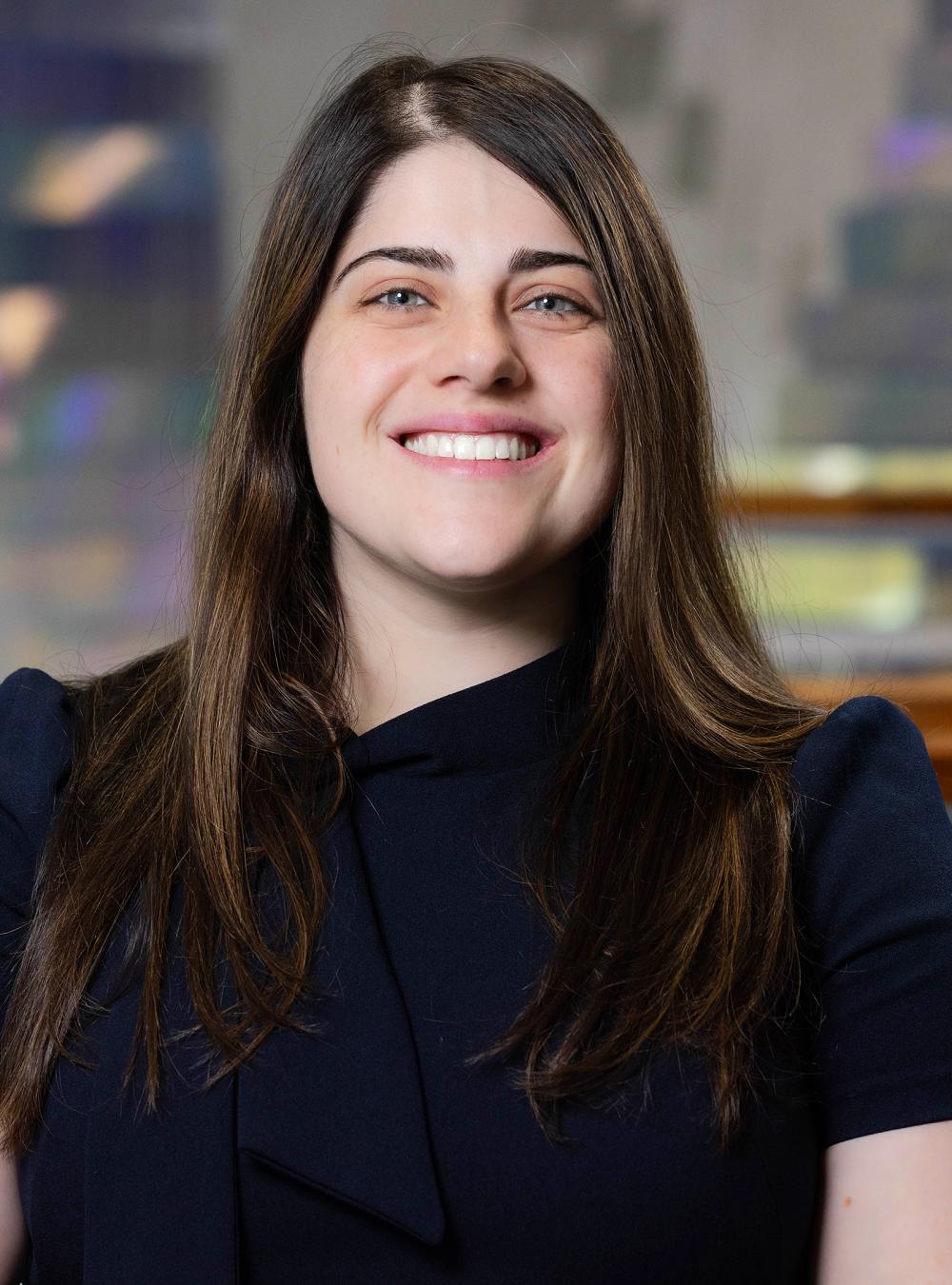Neurodiverse hiring is more than an I&D initiative. It’s a huge opportunity to tap a unique talent pool to help solve problems in cyber, AI, and more. For Autism Acceptance Month, we’re spotlighting the skills and determination of Maria Fanelle.

Transforming ‘Failure’ into Professional Success: Cyber Expert on the Spectrum Cuts Her Own Path
"It's a shame when you let your talents go to waste because you don't understand you have to keep trying and trying to contribute to society," says MITRE cloud engineer Maria Fanelle. "Too many autistic people are unemployed because they can't figure out how to get past that bar."
Those "too many" comprise upward of 85% of people on the autism spectrum who are unemployed, compared to roughly 4% of the general population. Fanelle, who has Asperger’s syndrome (part of the autism spectrum disorder), knows firsthand the challenges neurodiverse people face when searching for work.
"When I was first job hunting, I completely missed all the social cues involved in an interview," she explains. For example, she says neurodiverse people often prefer not to maintain direct eye contact when responding to questions. Interviewers can misread this as a lack of sincerity.
"It's just how you think and process information," she explains. "And someone might be really nervous, because they've been continuously going through failures."
Fanelle has turned her "failures"—and her unique way of processing information—into an impressive arc of early professional success. With MITRE since 2022, she’s part of a team that researches and prototypes cybersecurity tools for our government sponsors. Last year, the team modernized a sponsor’s critical software application, with little-to-no existing documentation or guidance.
"Maria contributed to reverse engineering the capability so we could replicate its functionality in the newer application," says Mark Ambrefe, her group leader. "She provides awesome technical expertise to help navigate unique challenges in our work."
When you have autism, you have to try and fail and keep trying. And look for role models. Connecting with other people is essential.
Turning "Disability" Into Decisive Advantage
Though autism spectrum disorder is considered a disability, research shows that many neurodivergent people possess special skills in pattern recognition, memory, and math. Additionally, companies with neurodiversity initiatives report higher productivity, innovation, and agility from their neurodiverse teams. With approximately 15-20% of the population considered neurodivergent, employers could be missing a chance to bring valuable assets into their workforce.
MITRE engages in two initiatives to tap into neurodiverse talent. Our Neurodiverse Federal Workforce Pilot Program aims to help federal agencies learn to be more neuro-inclusive. Additionally, our Portal Project engages in activities such as introducing neurodiverse high school students to STEM career opportunities.
While some industry leaders have neurodiversity hiring programs, Fanelle would like to see these efforts expand. "I think MITRE can lead in that regard."
Cyber is an especially good fit for people strong in pattern-based thinking, like Fanelle. She entered the field not through a structured recruiting initiative, but through sheer hard work.
While she struggled with math curriculum throughout school (due to an uncategorized learning disorder), she always showed a strong interest in technology. And not just interest—but serious aptitude. By sixth grade, Fanelle was creating websites. In high school, she completed an independent study class in coding, earning the National Center for Women & Information Technology Aspirations in Computing Award. While a history major at Rutgers University, she participated in cyber hackathons and mentored middle school girls interested in coding.
After graduation, she landed a job as an office automation intern with the Defense Contract Audit Agency. But she never lost sight of her desire to work in the tech world. On her own time, she got her Amazon Web Services Solutions Architect Certification and eventually transitioned to a position as a software developer at a financial services firm. From there, she took night classes to earn her master’s in cybersecurity from New York University.
Now Fanelle’s taking advantage of MITRE’s education benefits—and our focus on research and development—as she works toward a Ph.D. in computer science. For her dissertation, she’s doing threat modeling and looking at designing data structures to enhance privacy and security.
A Role Model in Her Own Right
Beyond advanced education, Fanelle believes in the impact of networking. She’s active in the international community of Women in CyberSecurity (WiCyS), for example. It was her connections there who pointed her toward MITRE.
"They told me this is the place to go to do cyber that’s highly interlinked to government. Here you can solve a variety of big problems," she notes. “I can move around and learn new skills and make more of an impact."
Her experiences breaking into the tech world, both as a woman and as a person on the autism spectrum, have inspired her to help others make an impact. Fanelle organizes outreach activities between MITRE and WiCyS. And she continues her college pastime of volunteering for TechGirlz, an organization that "empowers girls to be future technology leaders." Additionally, through our neurodiversity business resource group, she networks with colleagues who share similar challenges.
Fanelle’s own early-career journey speaks to the power of determination—and the potential in connection. "When you have autism, you have to try and fail and keep trying. And look for role models who will help you. Connecting with other people is essential."
Join our community of innovators, learners, knowledge-sharers, and risk takers. View our Job Openings and Student Programs. Subscribe to our MITRE 360 Newsletter.